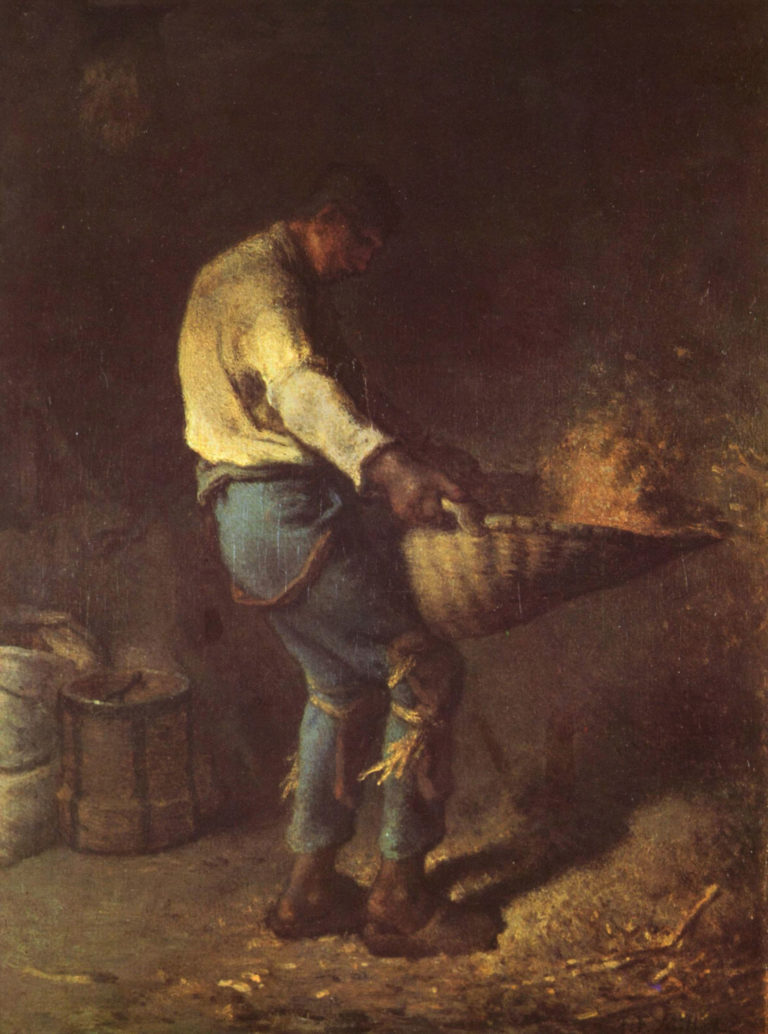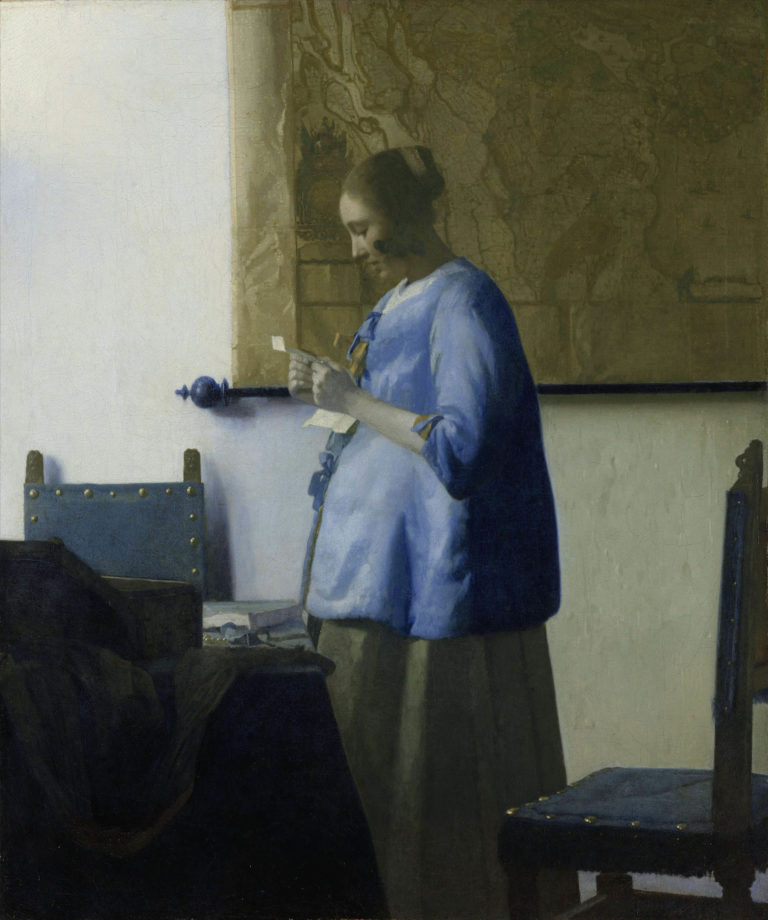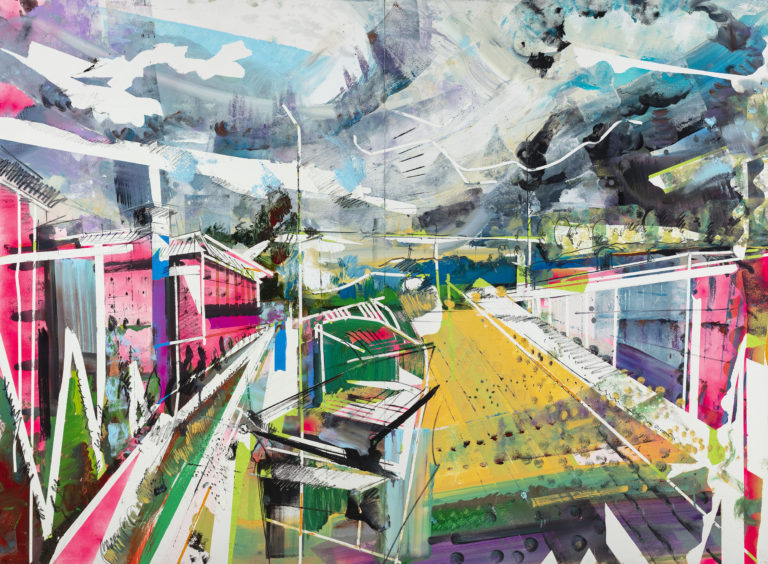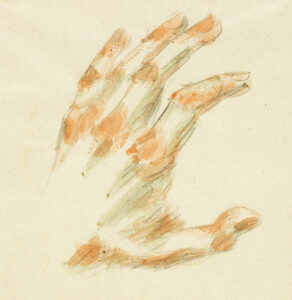The Marchutz Tapes — Reflections on Art
Man I Can Hear It

In this excerpt, Leo Marchutz speaks to a question that seems particularly relevant in our present world — what’s the purpose and value of art-making in the face of dire social, political and environmental crisis. Marchutz speaks to the difficulty of justifying art in a theoretical way, and points to the simple experience of being ‘touched’ by a particular work, and the almost ineffable knowing that results.
Leo Marchutz (L.M.): The question you have been asking: I think there is only one answer possible. That somebody asking such a question is somebody who has never been touched by a work of art, and you cannot talk with these people, because you cannot talk with a blind man about color. And that is about the situation. One cannot even argue with them because one is at a different… one speaks a different language.
Sam Bjorklund (S.B.): So what is the question, Leo?
L.M.: Why an art school today, where so much more important things have to be done in this world? It is a question many people today ask themselves and ask others. And I believe a person who asks that isn’t touched by any work of art, otherwise he couldn’t ask that.
Billy Weyman (B.W.): But, Leo, what if you were talking with someone who admitted that he had never been touched by a work of art or that he didn’t understand the nature of art – but was genuinely interested in trying to understand, why it was important and even believed that maybe it was a good answer but he just didn’t know what the answer was?
L.M.: Well, one can say that it is one of the most important things in human life and if one doesn’t understand it, one cannot make to understand it… one cannot… one cannot. You cannot theoretically say why it is important.
B.W.: Because, I think, there are people, maybe even in our very school, who sometimes ask themselves the question when they are painting, if maybe they ought not to be doing something they consider to be more useful to mankind and they immediately start thinking… .
L.M.: If they think they can do something more useful for humans, maybe… it may be more useful if they do something else. But then it can only be people, who have not the vocation of an artist, otherwise they couldn’t ask the question, seems to me.
Leo Marchutz,
Excerpt from The Marchutz Tapes, 1974-1976
I will always remember painting on the streets of Philadelphia and the occasion a passerby moving at a fast clip abruptly stopped. He looked at my canvas and then looked carefully beyond to the subject I was painting and exclaimed « Man, I can hear it… I can hear it » and then continued on his way. This event stands out for me as resonant in that I understood that art making still has the miraculous and immediate capacity to touch people and make them want to see. To this day I feel that beyond producing an esteemed work of art conceived as an intelligent and enlightened expression, that the mere creative act which compels anyone to stop, step outside of themselves and simply open their eyes has merit.
My education from the Marchutz school emphasized the continuity of artistic form observed in human activity throughout history — Millet’s « The Winnower » clutching his wicker basket presents a common human experience as a modern big-box employee corralling plastic shopping carts. Similarly Vermeer’s « Woman Reading a Letter » echoes a youth intently texting outside a Uni-Mart in 2020. The materiality and particular color harmonies inherent in the spaces occupied by humans in their historical milieu shift dramatically, providing a whole new set of unprecedented formal challenges which are capable of leading to universal truths. I believe the apparent discord of the contemporary synthetic landscapes actually reaffirms the necessity of making art, of wringing beauty and order out of the chaos and strangeness of our times.
For me, an ongoing bold effort is required to grasp the peculiar light and complexion of the present, which is after all not unrelated to any other distinct period in history. While sitting on the shoulders of our ancestral giants whose art has taught us how to love throughout the ages, our innovative visions positively reaffirm age old human truths and help provide meaning and dignity to our fleeting lives.
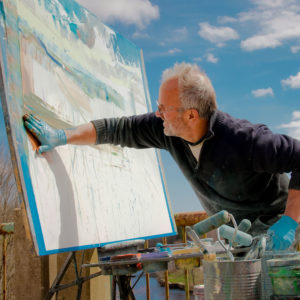
Excerpt chosen by David Brewster
David studied at the Marchutz School circa 1980. « My paintings synthesize a 200-year-old tradition of American Scene Painting into a new breaking point of abstraction in order to make sense of an increasingly bizarre and incongruous synthetic landscape. »
Click here to view David’s website & the video « Painting Maryland through Time ».

